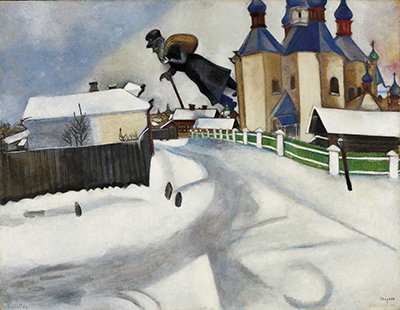The VCC competition is a new scheme that recruits teams of students to work across disciplines on issues relating to global challenge. In 2017, the topic was Sustainable Cities. Student teams were supported by staff from across the university, including our Vice Chancellor, Professor Sir David Eastwood. LANS students were finalists in 2017.
By Natacha Askovic (Liberal Arts and Natural Sciences, fourth year student)
Why did I immediately feel that a topic on Sustainability was one for me?
The year I spent in Sweden as an exchange student [the LANS Year Abroad] has contributed a lot to changing my mind-set, to making me grow up as an individual and a student. Taking courses in Sustainability (Sustainability: Greening the Economy – lessons from Scandinavia) and Environmental Governance have greatly contributed to shaping my knowledge on global environmental issues and the various theories underlying their understanding, as well as the different solutions used/suggested to limit their effect and/or deal with the situation we have brought ourselves in.
I can say now with hindsight that I had already developed, even before Sweden, strong interests in topics related to ecology on one side, and social studies on the other. It is also mostly the reason why I decided to go to Sweden, even though at the time of applications, I did not use these terms to refer to my decision to pursuing my exchange studies in Lund; it is only after studying there and being part of a very sustainable and environmentally-friendly community that I was able to truly phrase what made me want to go there in the first place – and what actually attracts me about Scandinavia, and Sweden in particular.
At the end of the day, what I have known for years now is that I want to make sure the world that surrounds me is a better place – and that I never leave it worse off on a daily basis! – and throughout my experience at University, I have been led to consider SUSTAINABILITY as the framework in which I would develop both myself as an individual and my future career.
I found out about the Vice Chancellor at the beginning of my second semester abroad, when I was already more aware of my appeal for these themes, and I was truly driven by the topic of Sustainable Cities and Communities, simply because I felt that I was part of a Sustainable Community living in a Sustainable (Student) City – among a lot of other things, I learnt how to recycle EVERYTHING in Sweden, using literally the 8 different bins we had in our flat!
“Could you have the answer to a global challenge”: the LANS approach to the Challenge
Now the VCC is over, I strongly believe that we stood out from the rest of the groups, as LANS students, with regard to our approach. Our team was made up of five members, each of us having very interdisciplinary profiles, and this was both very beneficial and challenging in the first phase of research. In my case, my academic areas of interests are mainly centred around economics and international relations. In the specific given framework of Sustainability, I was immediately attracted to the questions related to Green Economy, Circular Economy and green political thoughts (Ecosocialism, Bioenvironmentalist ideas, the institutionalists approach to global environmental issues). Considering this is a topic that I am truly fond of, I enjoyed doing a lot of research on top of my already solid background on the questions we raised as a team regarding how we could tackle the challenge.
Quickly after we had our team constituted, we were faced with a few difficulties, difficulties that I feel we managed to successfully overcome. I believe that the first and probably main challenge for us while we were still abroad was to settle on a topic/project and this was for several reasons.
The first one was common to all of the teams and related to how vague the instructions were. The expectations on the significance of our project as a solution were also very unclear [this was the first time the scheme had run, and the expectations evolved as the project developed]. Secondly, as LANS students, we all have very interdisciplinary profiles already, with majors from various colleges, (and thus also different research methods, academic perspectives etc.) and we were asked to work on an already very interdisciplinary and very broad topic, which I think did not necessarily mean that it was harder for us, but rather we would approach the question differently from the very early stages compared to the other teams. Last but not least, we were all abroad making physical meetings impossible and also faced the difficulty of finding suitable times for Skype calls as we were in different time zones (Sweden, South Korea, Germany and Australia).
For all of these various reasons, it seemed hard to settle on a topic. When we started running out of time, it was decided that every single member should come up with a solution rather than an issue relating to sustainability, and from there find the problem(s) it relates to/solves, thus making the project both innovative and interesting and having an actual impact. We would then all vote and so Urban Gardens was the solution we settled on.
I offered to work on the idea of closed loops, a project that would involve circular process – having in mind the research on circular economies very promoted in Sweden and at the EU level – since circular/closed processes and cycles, or loop models, could be applied in a lot of different areas (academic, industrial, manufacturing, waste management, and actually urban gardens too!). Not only do I believe this bit of input influenced a lot our research and project as well, but also that it is absolutely essential to the concept of sustainability, since it could resolve the paradox that resides in the growing interest in environmental issues on the one hand, and the importance granted to economic objectives (growth) in the current world on the other hand.
BUGGs working on their platform: the long-term implications
As I learnt throughout my module on the Greening of the Economy, the concept of ‘sustainability’ does not only refer to environmental impacts and practices, but rather relies on three pillars, i.e. the economy, the society and the environment. Very quickly, I understood that the social one was at the heart of sustainability since societies as a whole are included within the economy, which in turn is part of the environment that surrounds us – indeed this is HOW we have decided to organise our societies on a global scale. We hence felt that if we (and when I say ‘we’, I mean anyone who has any interest in sustainability), could work within this pillar and help people develop a sense of connection with the environment while at the same improving social cohesion, empowering communities by teaching them how to be more self sufficient together, this was both life-changing for so many people here, around us in Birmingham, and at the same time a great step in the pursuit of sustainable development.
Urban gardens – or community local food growing – would help build both social cohesion that is so essential for all the individuals for so many obvious reasons – among which well-being, personal development, more (equal) opportunities… We pictured it as a process relating to the grass roots, or bottom-up approach: by shifting back the focus to local action, this could trigger realization of the importance of say more environmental friendly practices by the individuals; it could also impact on consumption habits, nutrition-related awareness and so on. Shifting the focus back to the local level means defining an improved quality of life and thus creating visions of sustainable lifestyles. This in turn leads to the need to work on designing, supporting and governing more sustainable cities where people have a good life and hence shows the key role that innovation and clean technology have in this greening economy.
Then, developments at the business and innovation level are expected to also lead to increased awareness and involvement at the governance level, with effective strategic planning and integration of policy instruments. This is the reason why we believe that working on the social pillar at our level is the best way to trigger this long-term process while still getting these very powerful short-term benefits, essentially related to food security, increased social cohesion, development of important skills etc.
To recap, I would say that it was not so much that we consider environmental or economic aspects of sustainability as less important than the social ones, but rather that as students asked to work on sustainability, the most REALISTIC and EFFECTIVE approach to Sustainable Communities and Cities was to start with a focus on the social sphere of the concept. Thus, Birmingham Urban Gardening Group (BUGG).
The benefits of participating?
I think that the most rewarding aspect of being part of this team and what made me so proud of us was literally knowing how feasible and concrete all of this is. We did not just come up with a utopian project relying on years of deep research, or huge finances. It was thought through to be as practical and achievable as if it was to be done tomorrow. We exactly know how we would proceed with our online platform, serving as a link to all the community gardens and people wanting to get involved in the offline community it would serve. We know we would go to schools and talk to children, and show them what they can do. We know this would bring families together to urban gardens, and create a strong connection to the environment and awareness on food practices, as well as help them all develop strong skills while meeting people they would not get to know otherwise, and so bringing communities together.
The final year is challenging enough but at the end of the day, I study because I believe in myself and what I can achieve through my studies. Studying is not just about satisfying my parents or making sure I earn enough money, it’s about the impact we can have as individuals, it’s about our beliefs and how we use our skills, our knowledge, our strengths and weaknesses to satisfy our values.
As written in the Brundtland Report (1987), ‘humanity has the ability to make development sustainable to ensure it meets the needs of the present without compromising the ability of future generations to meet their own needs’ and ‘technology and social organisation can be both managed and improved to make way for a new era of economic growth’. With the aim of developing a sustainable project for the VCC, we manage to reach policy advisors, to meet community gardens managers but also communities who already are part of it, and to offer a solution to tackling food poverty (a topic that’s close to my heart, and that I am focusing on for my LANS dissertation too!) and the strong inequalities, and reduce the lack of social cohesion in the area of Birmingham.
In conclusion
Despite the challenges raised here, I think that the VCC highlighted how much we have benefited from our course: team work (for the core modules) + interdisciplinary modules + stimulating debates thanks to the our very personal perspectives. I think that our project was also about making compromises for each of us, both very obviously on the topic and maybe less on the entire expectations related to the project. I think that it is easy to see how much I have learnt on the concept of sustainability though this work, but also on the development of a project of applied sustainability in relatively long-term. A topic on Sustainable Cities and Communities is of genuine global importance, and I already had a taste of its practicality while doing my placement this summer at the Economic Department/French Embassy in Croatia and working on the state and potential of the Energy sector; I was glad to work on the VCC because it meant creating from scratch something more concrete and achievable, which also added to my experience to the field.



 On Tuesday the 22nd of March some of the committee members of LASSoc put on our best dresses and prepared ourselves for The Guild Awards 2016. Every year our student’s union recognise the hard work put in by societies with The Guild Awards where the best societies can win prizes. The event is held in the Great Hall of the Aston Webb building and I thought I would bring you guys along.
On Tuesday the 22nd of March some of the committee members of LASSoc put on our best dresses and prepared ourselves for The Guild Awards 2016. Every year our student’s union recognise the hard work put in by societies with The Guild Awards where the best societies can win prizes. The event is held in the Great Hall of the Aston Webb building and I thought I would bring you guys along.


 There is something incredibly exciting about handling first-editions of Charles Dickens and Thomas Hardy, as well as Queen Victoria’s personal diary, the Mingana collection (a group of Middle Eastern manuscripts dating from as early as the 6th century), ancient Egyptian papyri, Neville Chamberlain’s copy of Mein Kampf and a letter describing his first impressions of Hitler. I got to do all of this and more as part of my four week internship with the Cadbury Research Library.
There is something incredibly exciting about handling first-editions of Charles Dickens and Thomas Hardy, as well as Queen Victoria’s personal diary, the Mingana collection (a group of Middle Eastern manuscripts dating from as early as the 6th century), ancient Egyptian papyri, Neville Chamberlain’s copy of Mein Kampf and a letter describing his first impressions of Hitler. I got to do all of this and more as part of my four week internship with the Cadbury Research Library. showing us the ins and outs of their different roles as archivists, librarians and conservators. From a personal point of view, it was fascinating to see how the Research Library worked behind the scenes, from the perspective of an employee on a day to day basis. My cataloguing project focused on Bridget Stevenson, a woman who worked for the Save the Children Fund, in German refugee camps from 1948-1962. Steph, an early modern History PhD student, looked at 20th century records of the Women’s Amateur Athletics Association, and Katherine, who just graduated with an English Literature degree, worked on University of Birmingham Medical Society.
showing us the ins and outs of their different roles as archivists, librarians and conservators. From a personal point of view, it was fascinating to see how the Research Library worked behind the scenes, from the perspective of an employee on a day to day basis. My cataloguing project focused on Bridget Stevenson, a woman who worked for the Save the Children Fund, in German refugee camps from 1948-1962. Steph, an early modern History PhD student, looked at 20th century records of the Women’s Amateur Athletics Association, and Katherine, who just graduated with an English Literature degree, worked on University of Birmingham Medical Society. Irrelevant of subject, the skills that I have learnt here will be invaluable in the wider working world. Throughout the past four weeks, I have developed my ability to work as part of a team, and as an individual in a professional environment, as well as time management, organisation and the ability to work to a deadline. We also learnt more specific skills including Photoshop, IT, research and conservation.
Irrelevant of subject, the skills that I have learnt here will be invaluable in the wider working world. Throughout the past four weeks, I have developed my ability to work as part of a team, and as an individual in a professional environment, as well as time management, organisation and the ability to work to a deadline. We also learnt more specific skills including Photoshop, IT, research and conservation.














